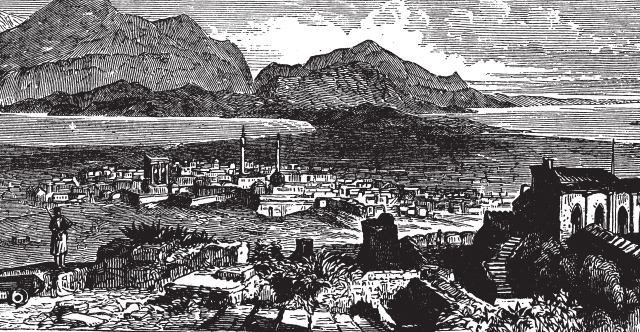
1
N
ow about food offered to idols: of course we know that all of us possess knowledge knowledge causes people to be puffed up (to bear themselves loftily and be proud), but love (affection and goodwill and benevolence) edifies and builds up and encourages one to grow.
Pour ce qui concerne les viandes sacrifiées aux idoles, nous savons que nous avons tous la connaissance. -La connaissance enfle, mais la charité édifie.
2
I
f anyone imagines that he has come to know and understand much, he does not yet perceive and recognize and understand as strongly and clearly, nor has he become as intimately acquainted with anything as he ought or as is necessary.
Si quelqu'un croit savoir quelque chose, il n'a pas encore connu comme il faut connaître.
3
B
ut if one loves God truly '> with affectionate reverence, prompt obedience, and grateful recognition of His blessing], he is known by God '> recognized as worthy of His intimacy and love, and he is owned by Him].
Mais si quelqu'un aime Dieu, celui-là est connu de lui. -
4
I
n this matter, then, of eating food offered to idols, we know that an idol is nothing (has no real existence) and that there is no God but one.
Pour ce qui est donc de manger des viandes sacrifiées aux idoles, nous savons qu'il n'y a point d'idole dans le monde, et qu'il n'y a qu'un seul Dieu.
5
F
or although there may be so-called gods, whether in heaven or on earth, as indeed there are many of them, both of gods and of lords and masters,
Car, s'il est des êtres qui sont appelés dieux, soit dans le ciel, soit sur la terre, comme il existe réellement plusieurs dieux et plusieurs seigneurs,
6
Y
et for us there is one God, the Father, Who is the Source of all things and for Whom we, and one Lord, Jesus Christ, through and by Whom are all things and through and by Whom we.
néanmoins pour nous il n'y a qu'un seul Dieu, le Père, de qui viennent toutes choses et pour qui nous sommes, et un seul Seigneur, Jésus Christ, par qui sont toutes choses et par qui nous sommes.
7
N
evertheless, not all possess this knowledge. But some, through being all their lives until now accustomed to idols, still consider the food as that sacrificed to an god; and their weak consciences become defiled and injured if they eat.
Mais cette connaissance n'est pas chez tous. Quelques-uns, d'après la manière dont ils envisagent encore l'idole, mangent de ces viandes comme étant sacrifiées aux idoles, et leur conscience, qui est faible, en est souillée.
8
N
ow food will not cause our acceptance by God nor commend us to Him. Eating gives us no advantage; neither do we come short or become any worse if we do not eat.
Ce n'est pas un aliment qui nous rapproche de Dieu: si nous en mangeons, nous n'avons rien de plus; si nous n'en mangeons pas, nous n'avons rien de moins.
9
O
nly be careful that this power of choice (this permission and liberty to do as you please) which is yours, does not become a hindrance (cause of stumbling) to the weak or overscrupulous.
Prenez garde, toutefois, que votre liberté ne devienne une pierre d'achoppement pour les faibles.
10
F
or suppose someone sees you, a man having knowledge reclining at table in an idol’s temple, might he not be encouraged and emboldened if he is weak and uncertain, and eat what is for the purpose of idol worship?
Car, si quelqu'un te voit, toi qui as de la connaissance, assis à table dans un temple d'idoles, sa conscience, à lui qui est faible, ne le portera-t-elle pas à manger des viandes sacrifiées aux idoles?
11
A
nd so by your enlightenment (your knowledge of spiritual things), this weak man is ruined (is lost and perishes)—the brother for whom Christ (the Messiah) died!
Et ainsi le faible périra par ta connaissance, le frère pour lequel Christ est mort!
12
A
nd when you sin against your brethren in this way, wounding and damaging their weak conscience, you sin against Christ.
En péchant de la sorte contre les frères, et en blessant leur conscience faible, vous péchez contre Christ.
13
T
herefore, if food is a cause of my brother’s falling or of hindering, I will not eat flesh forever, lest I cause my brother to be tripped up and fall and to be offended.
C'est pourquoi, si un aliment scandalise mon frère, je ne mangerai jamais de viande, afin de ne pas scandaliser mon frère.
 English
English
 Albanian - Shqip
Albanian - Shqip
 Arabic - العربية
Arabic - العربية
 Bulgarian - Български
Bulgarian - Български
 Chinese - 汉语
Chinese - 汉语
 English - English
English - English
 French - Français
French - Français
 German - Deutsch
German - Deutsch
 Italian - Italiano
Italian - Italiano
 Māori - Te Reo Māori
Māori - Te Reo Māori
 Portuguese - Português
Portuguese - Português
 Romanian - Română
Romanian - Română
 Russian - Русский
Russian - Русский
 Somali - Af Soomaali
Somali - Af Soomaali
 Spanish - Español
Spanish - Español
 Ukrainian - Українська
Ukrainian - Українська
 Vietnamese - Tiêng Viêt
Vietnamese - Tiêng Viêt
 French
French
 Albanian - Shqip
Albanian - Shqip
 Arabic - العربية
Arabic - العربية
 Bulgarian - Български
Bulgarian - Български
 Chinese - 汉语
Chinese - 汉语
 English - English
English - English
 French - Français
French - Français
 German - Deutsch
German - Deutsch
 Italian - Italiano
Italian - Italiano
 Māori - Te Reo Māori
Māori - Te Reo Māori
 Portuguese - Português
Portuguese - Português
 Romanian - Română
Romanian - Română
 Russian - Русский
Russian - Русский
 Somali - Af Soomaali
Somali - Af Soomaali
 Spanish - Español
Spanish - Español
 Ukrainian - Українська
Ukrainian - Українська
 Vietnamese - Tiêng Viêt
Vietnamese - Tiêng Viêt
